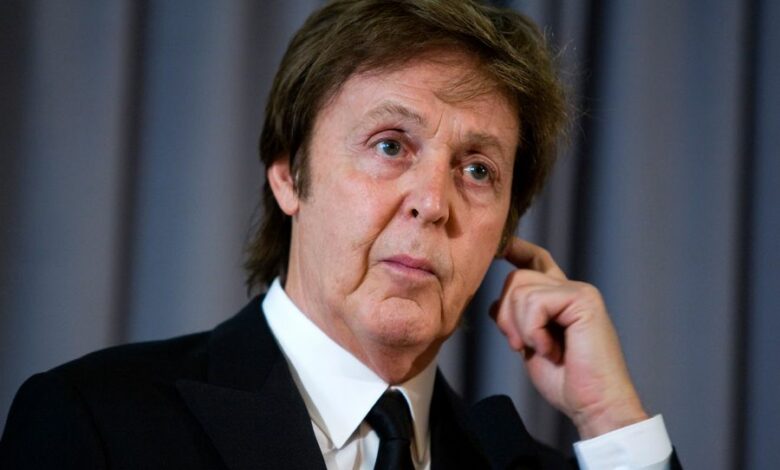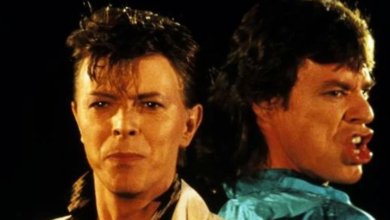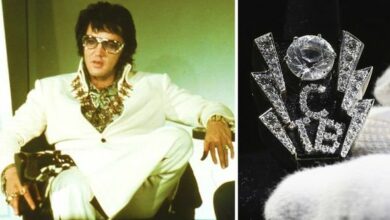The musicians that Paul McCartney admires above all others

Jarvis Cocker had the distinct pleasure of interviewing Paul McCartney in 2018. Although the Beatle was there to promote Egypt Station, he did agree to discuss other aspects of his life. Naturally, Cocker asked him about musicians he admired.
“Fellow Beatles,” McCartney replied. “John [Lennon], who was pretty cool, and George [Harrison] and Ringo [Starr]. Having worked with John so one-on-one, I got to see his [songs] before the world. I’m a big fan.”
Sadly, Lennon’s influence was nowhere to be heard on Egypt Station, a paltry album so devoid of originality that it made Wild Life look like the holistic masterpiece McCartney had always intended it as. Indeed, there is a case to be made about Egypt Station being among Paul’s weakest works, but it was well-received in 2018 and became his first number one album in the United States since 1982.
No McCartney album is without merit, and the record’s most successful vignette, ‘Dominoes’, is a stylish, sophisticated piece of avant-funk, and proves more than pleasantly reminiscent of Stevie Wonder’s work from the eighties.
McCartney included Wonder in his conversation with Cocker: “You gotta go to Stevie. He was just a musical monster. He’s fantastic.” McCartney invited the songwriting keyboardist down to the sessions that made up Tug of War, and the pair collaborated on ‘What’s That You’re Doing’, a funky dance number that showed how easily McCartney could adapt himself to the genre. The pair also worked on ‘Ebony and Ivory’ together, which made it McCartney’s first polemical rocker since ‘Give Ireland Back To The Irish’ in 1972.
Unlike the more risible Egypt Station, Tug of War was deserving of its acclaim, compiling a work that doubled as his most elliptical, as well as one of his more accessible. Between the dazzling show tunes, the album also boasted a number of starker compositions, most notably ‘Here Today’, which contains one of McCartney’s most affecting, and certainly one of his more vulnerable, vocal lines.
Purportedly written in Lennon’s memory, the song was also his way of bidding farewell to a more innocent time, as the 1960s faded further and further from his sight. And then there was ‘Somebody Who Cares’, written from the hands of a person aching the world to hold him or hug him, at the very least. Between these numbers stood ‘Wanderlust’, a lushly produced piano ballad that demonstrated that the cerebral rocker had what it took to write something deeply yearning and romantic.
Soaked in invention, intuition and surprises, Tug of War is very much the album Egypt Station should have been, but McCartney more than compensated for the album’s failings with the epochal McCartney III in 2020. Cut in the middle of a pandemic, the album exhibited the vocalist plunging into darkness and ultimately redemption through a series of pastoral works that led to an emotive whole. By the time the album ended, McCartney had earned himself a rest in the farmyards that excited his creative muse.
While he didn’t deliver the goods in 2018, McCartney has more than earned himself the right to refer to call luminaries Lennon and Wonder his peers. It’s understandable that he didn’t salute Michael Jackson in light of recent allegations, but it’s a shame that McCartney didn’t also take this moment to praise either Denny Laine or Eric Stewart.
Laine acted as his lieutenant in Wings, and wound up composing many of the memorable tunes on London Town. And although McCartney had the chorus for ‘Mull of Kintyre’, it was Laine who fleshed out the lyrics for the tune. Similarly, Stewart enjoyed a working relationship with the solo Beatle. His voice can be heard cascading with McCartney’s on ‘Take It Away’ and ‘So Bad’, and he too was promoted to the position of co-writer on Press to Play. Sure, it wasn’t the greatest of albums, but that had more to do with the mushy production than the songcraft itself.
And then there’s Kanye West, who helped introduce McCartney to a younger, more technologically attuned audience to the folks who bought ‘Silly Love Songs’ in 1976. McCartney has enjoyed working with several people over the years, and many of them have helped him to reconnect with his songwriting abilities and occasional level of genius.
Stream the conversation between Cocker and McCartney below.





